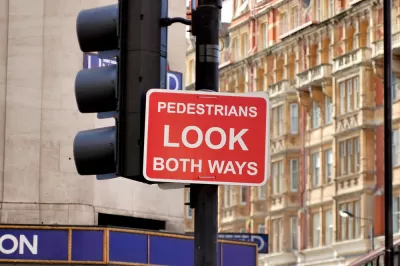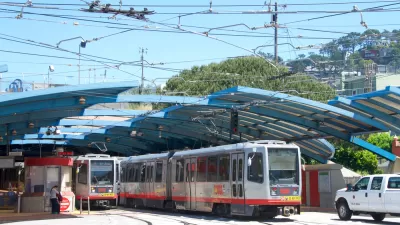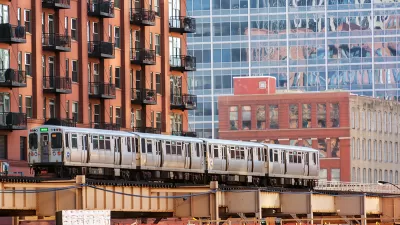The new Transit-Walkability Collaborative works to create safe, healthy, equitable, and sustainable communities by harnessing the synergy between walkability and quality public transit service.

America Walks announced today the formation of the Transit-Walkability Collaborative, whose purpose is to expand safe, healthy, equitable, and sustainable communities by harnessing the synergy between walkability and quality public transit service.
The Transit-Walkability Collaborative notes that integrating walkability and public transit helps to create safe, affordable, and enjoyable neighborhoods, whose residents complete their daily activities while owning fewer vehicles and driving less often. These communities experience significant public and private-sector cost savings, lower rates of traffic fatalities, reduced air pollution and greenhouse gas emissions, higher levels of physical activity, and a better quality of life—especially for low-income families.
"Walkability and transit advocacy complement each other and accomplish common goals neither can achieve on its own," said Ian Thomas, State and Local Program Director with America Walks and coordinator of the Collaborative. "By ensuring a high level of service for both walking and public transport, we stimulate mutually-reinforcing community benefits that help address a range of social problems – from health to economics to quality of life."
According to America Walks Executive Director Kate Kraft, “Our shared goals are to improve public health, safety, and transportation equity,” she said, "by developing complementary planning efforts, increasing funding for active and public transportation, and supporting transit-oriented development that is designed to benefit existing residents and neighborhoods."
Several upcoming events are being planned to explore the alignment of walkability and transit campaigns.
FULL STORY: Transit-Walkability Collaborative Established

Maui's Vacation Rental Debate Turns Ugly
Verbal attacks, misinformation campaigns and fistfights plague a high-stakes debate to convert thousands of vacation rentals into long-term housing.

Planetizen Federal Action Tracker
A weekly monitor of how Trump’s orders and actions are impacting planners and planning in America.

In Urban Planning, AI Prompting Could be the New Design Thinking
Creativity has long been key to great urban design. What if we see AI as our new creative partner?

King County Supportive Housing Program Offers Hope for Unhoused Residents
The county is taking a ‘Housing First’ approach that prioritizes getting people into housing, then offering wraparound supportive services.

Researchers Use AI to Get Clearer Picture of US Housing
Analysts are using artificial intelligence to supercharge their research by allowing them to comb through data faster. Though these AI tools can be error prone, they save time and housing researchers are optimistic about the future.

Making Shared Micromobility More Inclusive
Cities and shared mobility system operators can do more to include people with disabilities in planning and operations, per a new report.
Urban Design for Planners 1: Software Tools
This six-course series explores essential urban design concepts using open source software and equips planners with the tools they need to participate fully in the urban design process.
Planning for Universal Design
Learn the tools for implementing Universal Design in planning regulations.
Appalachian Highlands Housing Partners
Gallatin County Department of Planning & Community Development
Heyer Gruel & Associates PA
Mpact (founded as Rail~Volution)
City of Camden Redevelopment Agency
City of Astoria
City of Portland
City of Laramie




























